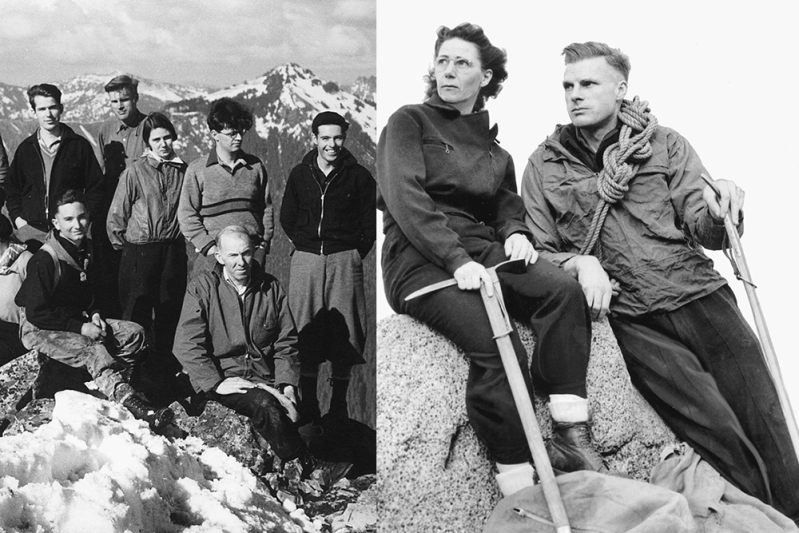
By the time you read this, REI’s Co-op Sale, a members-only event, will be underway. Similar to its legendary Garage Sales, in which outdoors enthusiasts embark on a mad dash to purchase slightly used items at a fraction of the original cost, its REI Co-op Sale offers a socially distanced (although still as energetic) opportunity to score quality gear significantly cheaper than usual. It’s no surprise, then, that the source of this savings bonanza came from a couple’s desire to buy better equipment for less. But that’s exactly the origin story of the REI Co-op. Here’s what you need to know about the brand before the REI Anniversary Sale.
How REI Was Founded
Recreational Equipement, Inc. was founded by a couple of laymen mountaineers in 1935, although they didn’t know it at the time. Seattle’s Lloyd and Mary Anderson were normal people with a passion for the outdoors and an appreciation for quality equipment. From their local climbing shop, they could buy an Austrian ice ax, but they were expensive. If they went through more distant ski shops, they were cheaper but of inferior quality. So Lloyd and Mary began buying axes direct from Austria for their personal use. It was a better price and a better product, and soon their friends from their local climbing club began to inquire. The Andersons’ expanded, collecting money from friends to collectively increase their buying power, forst for axes and then for other gear. Just as when climbers are ascending a peak together, there was strength in numbers.
In 1938, with assistance from a lawyer friend, the co-op structure was put into a legal framework, with 22 individuals buying in for a $1 lifetime fee. The first brick-and-mortar location was a single shelf in a grocery store and back stock was housed in the Andersons’ attic.

Today, across its 165 stores in 39 states, the co-op structure is still used through a one-time $20 fee voluntarily paid by customers who want to take their relationship with the brand to the next level. Because of its business structure, every year REI donates around 70% of its profits to outdoor causes from the hyper-local to the international, so everyone wins. As a bonus, members receive an annual dividend credit with which they can apply to future gear purchases or cash out, and as insiders they receive discounted services like bike repairs, ski tune-ups, equipment rentals, access to Co-op-exclusive gear, and even trade-in credit for gently used stuff they no longer want.
REI’s Success
REI’s used gear business model (and generous return policy) has even led to profitable side ventures. In 2017, it opened an online platform in which to sell these secondhand items, and unsurprisingly, it was met with rapid support. “At REI, we believe a life outdoors is a life well-lived, but we know that the cost of brand-new gear can be a barrier to access,” said Peter Whitcomb, REI’s director of strategy and leader of the co-op’s used gear efforts, in a release. “In its first 10 months, the beta test has been successful beyond all expectation, which tells us there is an inherent appetite for high-quality, lightly used product at lower price points.”
Its latest venture, initiated amid a pandemic, was announced in the fall of 2020, when REI revealed plans to open two used gear stores, in California and Pennsylvania. Accessible to the Co-op only, it’s one more benefit of membership, and at both of these locations, store credit for trade-ins provides continual inventory. As a secondary benefit, it gives garments and gear a second life with someone earlier in his or her outdoor life as well as preventing their immediate deposit in a landfill.
But, of course, the one Co-op benefit that’s universally celebrated around the U.S. is REI’s famous sales, including its Co-op Sale. Sure, it may not be as satisfying or exhilarating as being in that cold parking lot preparing to sprint toward the nearest table. But the passion you’ll experience online is the same as in-person, albeit without the potential downside: “The sale is going to go on whether you are laying in the parking lot dead or limping around on a bloody stump,” said one Garage Sale vet, “so don’t get hit.”



